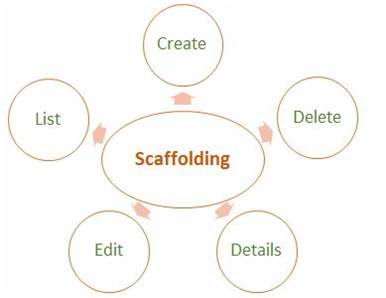MVC-Scaffolding
MVC Scaffolding is a powerful feature in ASP.NET MVC that helps developers quickly generate boilerplate code for CRUD (Create, Read, Update, Delete) operations. It speeds up the development process by automating the creation of controllers, views, and other components based on the database schema.
The scaffolding code can include controllers, views, and data access code automatically generated that can help developers to create web applications more quickly and with less manual coding.

How to Use Scaffolding:
Creating a Model - Define a model class that represents the data structure.
public class Product
{
public int ProductID { get; set; }
public string Name { get; set; }
public decimal Price { get; set; }
}Adding a Controller
- Right-click on the Controllers folder in Solution Explorer, select "Add" -> "Controller...".
- Choose the appropriate scaffolding template (e.g., "MVC 5 Controller with views, using Entity Framework").
- Select the model class and the data context class, and click "Add".
Generating Views
The scaffolding process will generate views for CRUD operations (Index, Create, Edit, Details, Delete) based on the model.
Example of Generated Controller Code
public class ProductsController : Controller
{
private ApplicationDbContext db = new ApplicationDbContext();
// GET: Products
public ActionResult Index()
{
return View(db.Products.ToList());
}
// GET: Products/Create
public ActionResult Create()
{
return View();
}
// POST: Products/Create
[HttpPost]
[ValidateAntiForgeryToken]
public ActionResult Create([Bind(Include = "ProductID,Name,Price")] Product product)
{
if (ModelState.IsValid)
{
db.Products.Add(product);
db.SaveChanges();
return RedirectToAction("Index");
}
return View(product);
}
// Other CRUD actions (Edit, Details, Delete) are also generated
}Next
